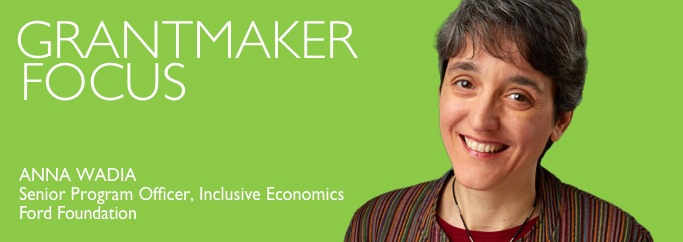
Address: 320 E. 43rd Street, New York, NY 10017
Web: www.fordfoundation.org
In 1936, Edsel Ford—son of Henry, the founder of the Ford Motor Company—established the Ford Foundation with an initial gift of $25,000. During its early years, the foundation operated in Michigan under the leadership of Ford family members. The founding charter stated that resources should be used for “scientific, educational, and charitable purposes, all for the public welfare.”
After Edsel and Henry died in the mid-1940s, their bequests turned the foundation into the largest philanthropy in the world at that time. Henry Ford II, Edsel’s eldest son, assumed leadership of the foundation, and he and the board of trustees commissioned a blue-ribbon panel, led by H. Rowan Gaither, to explore how the foundation could best put its greatly increased resources to use. The Gaither Study Committee recommended that the foundation become an international philanthropy dedicated to the advancement of human welfare. With headquarters in New York, New York the foundation has offices in Latin America, Africa, the Middle East, and Asia.
The foundation is guided by a vision of social justice—a world in which all individuals, communities, and peoples work toward the protection and full expression of their human rights; are active participants in the decisions that affect them; share equitably in the knowledge, wealth, and resources of society; and are free to achieve their full potential. Across eight decades, its mission has been to reduce poverty and injustice, strengthen democratic values, promote international cooperation, and advance human achievement.
Program Information: Addressing inequality is at the center of everything the Ford Foundation does in our grantmaking around the world with a programmatic focus on eliminating the drivers of inequality. While not customarily identified as a health funder, within its Inclusive Economies work, Ford has in fact been a leader in supporting successful efforts to raise the floor on labor standards and create universal and inclusive social protection programs for the 21st century. These include paid sick days, paid family leave and improving the quality of frontline home care jobs and innovating on long-term care policy. As discussed in GIH Views from the Field, paid family leave and paid sick days are as much health issues as they are economic justice issues, and improving home care jobs not only boosts the economic security of careworkers, but also the health of elders and people with disabilities. The foundation thus sees its work breaking the vicious cycles where economic, racial, gender, and health inequities reinforce one another in pernicious ways.
Financial Information:
Total Assets: $12.3 Billion FY16
- Special Initiatives and/or Representative Health and Human Services Grants Family Values @ Work—General support to advocate for family-friendly workplace policies and protections such as paid sick days and family medical leave.A Better Balance—General support to promote equality and expand choices for men and women at all income levels so that they may care for their families without sacrificing their economic security and core support for capacity building.National Partnership for Women and Families—Core support for the Work and Family Program to promote the expanded availability of paid sick days and paid family leave for all workers.Caring Across Generations—Core support for the Caring Across Generations Campaign to transform long-term care and create new, quality jobs in the United States.PHI—General support for research, policy, and practice initiatives to improve the quality of jobs, professionalize the workforce, and promote economic security in the rapidly-growing direct care sector.
Role of Philanthropy in Meeting Pressing Needs
“There are many opportunities for health funders and funders focused on economic security to work together to promote economic and health equity. These include:
- bringing health experts and advocates together with economic justice advocates to support local, state and federal policy advocacy on cross-cutting issues;
- bringing the reach, expertise, and resources of health funders to the challenges of making sure that the populations most in need of new programs, like paid family leave, know about and access them;
- determining how health care issues fit in the larger conversation of the future of work;
- documenting the impact of such policy advances on individual, family, and public health;
- helping to create a culture that promotes everyone’s dignity, whether consumers, family caregivers, or frontline workers.”
– Anna Wadia, Senior Program Officer, Inclusive Economics

